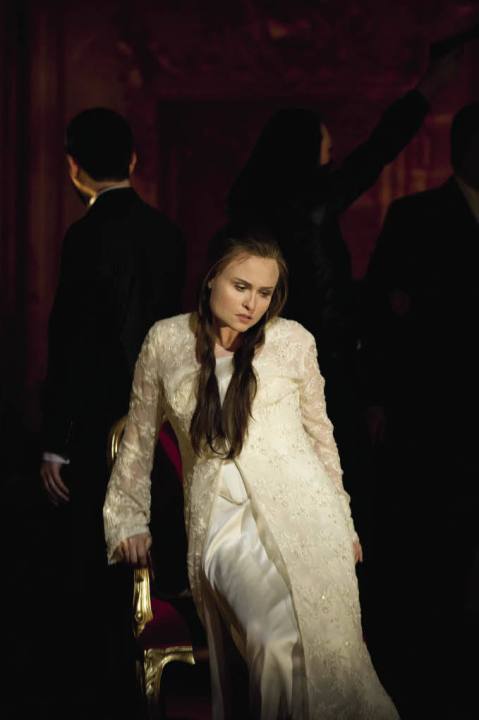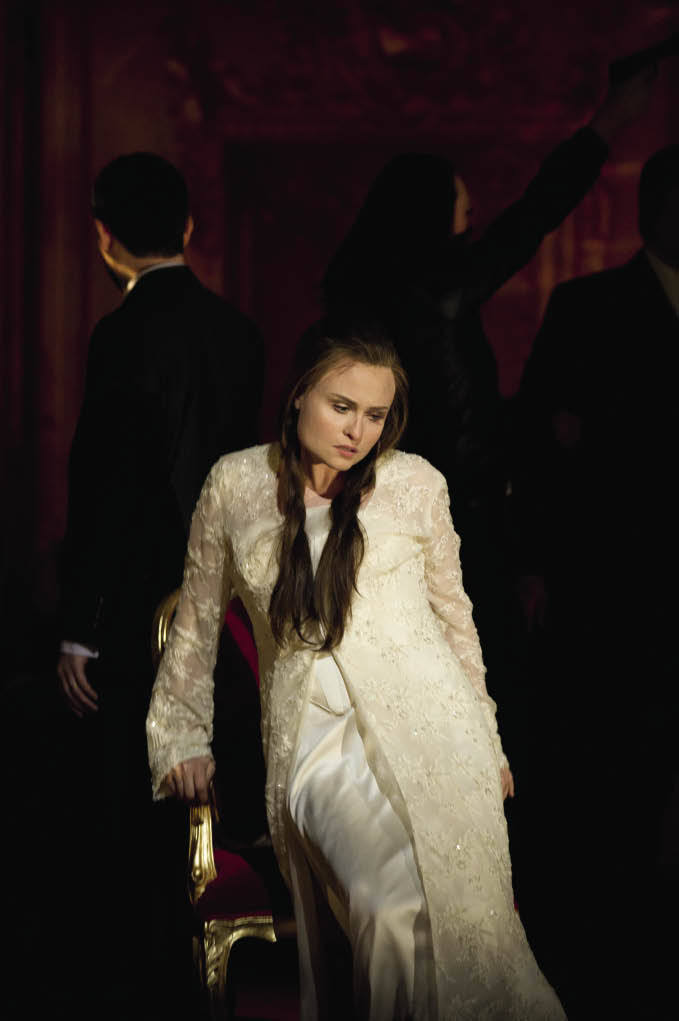The Tsar’s Bride is Rimsky-Korsakov’s tenth opera, give or take various versions of some previous ones, but you’d never guess it.
The Tsar’s Bride is Rimsky-Korsakov’s tenth opera, give or take various versions of some previous ones, but you’d never guess it. The production at the Royal Opera, which is exemplary in most respects, suggests a fairly talented newcomer to the genre, who isn’t yet in a position to boss his librettist around in the necessary ways.
The Overture sets no scene, and is anyway tiresome and undistinguished; there are lots of stereotypical choral scenes; the central set of characters and their motivations sometimes get submerged in superfluous sidelines. But, worse, the music meanders in strange ways, much of it is anonymous and not even vaguely ‘Russian’ in feeling — not surprising, since Rimsky was, we are told, reacting against musical nationalism, and finally able, thanks to the death of his long-time rival Tchaikovsky, to adopt a ‘Western’ idiom and even up to a point to model his work on The Queen of Spades. But whatever he was up to, one might expect such a consummate professional as Rimsky to know how to sustain musical dramatic tension. But here, despite a plot full of lurid scheming and plausibly desperate behaviour, the musical textures sometimes seem absent-minded in their irrelevance and thinness, and you wouldn’t know, if you were only listening to it, when the dramatic climaxes occur.
Paul Curran, who directs this new account, has chosen to update the action from Ivan the Terrible’s reign to the present. No surprise there. We are told, though I don’t think we need to be, that Russia is as corrupt now as it was then, a dangerous place to live if you have ambitions, especially of a political or erotic kind. As usual, the updating means that there are frequent jarrings, as in the toasts to the Tsar, the arrival of boyars on the scene, references to a non-existent church, and so on. The experienced opera-goer is inured to that, but newcomers might find it a bit strange.
Still, that granted, or swallowed, the settings by Kevin Knight are brilliantly atmospheric, a seedy expensive club for Act I, with the chief male character, the oprichnik Grigory Gryaznoy, singing to a hooded largely unclad figure, who, when the hood is removed, turns out to be Gryaznoy’s latest murder victim. Act II is set in a seedy street, Act III in a billionaire’s home — ‘There is rich, and there is super rich, and then there is Russian rich’ is quoted in the programme — with high-rises and possibly a factory in the background (anyway, it gained a round of applause), and Act IV is a stupendously gilt baroque palace, a marvellous contrast with everything that precedes it.
Reading the story beforehand, in several versions, hoping that understanding might dawn, I got the impression of an enormous amount of plot, much of it centrifugal. However, the opera turned out to be simplicity itself, with so little incident, and almost nothing in the way of characterisation, that padding is constantly needed. Grigory has one mistress, Lyubasha, but badly wants another, Marfa, who is not only in love with the young nobleman Lïkov, but is chosen by Ivan the Terrible (very briefly seen, unheard) as his latest wife. The services of the German ‘pharmacist’ Bomelius are enlisted, for lethal and aphrodisiac purposes. It all ends badly, Marfa losing her mind and singing a mad scene (Rimsky’s defiant capitulation to Western opera), Lyubasha having swapped potions so that Marfa has been poisoned; Grigory stabs Lyubasha and is led away to prison — so the main unrealistic element is that justice is more or less done.
The musical performance is in almost all respects faultless, and the direction of the characters is so cogent that for most of the opera disbelief is effortlessly suspended. There were times when I felt that Mark Elder, the conductor, was tending the score too anxiously when things needed to be moving along, but the orchestral playing was so ravishing that it was easy to understand why.
The central female character is really Lyubasha, a Verdian villainess who earns our sympathies through the intensities of her betrayed feeling. Ekaterina Gubanova gives a complete, vivid account of the part. Marina Poplavskaya, as the desired-by-all Marfa, surprised me by the vigour of her identification with the role, and Johan Reuter, one of the few non-Slavs in the cast, made just as strong an impact as anyone else. Despite this preponderance of Slavs, there was scarcely a wobble to be heard all evening.
I don’t see that anyone could be moved by this piece; it is too lacking in authentic musically realised passion for that. But it is wonderful to see so faultless a production, especially after the immediately preceding one, Fidelio, a blazing masterpiece which was completely unaffecting, since no one on the stage seemed to realise that they were not alone in the universe. Let’s hope that soon we get a great work and a production and performance worthy of it.







Comments